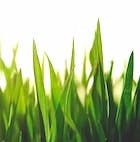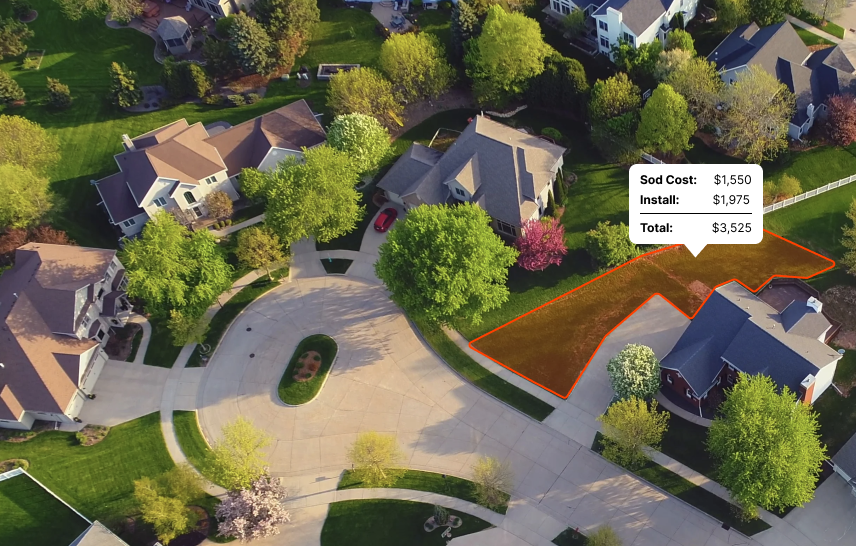Do this, and you'll have a lawn that's the picture of health, and the pride of the Cornhusker State.”
Introduction
Welcome to Nebraska, where the summer sun sizzles and winter winds whip. This is humid continental climate territory, and the thermometer's antics play a big part in choosing the right grass for your lawn.
Nebraska is prime real estate for cool-season grasses. They get a kick out of the state's climatic rollercoaster, making them the go-to choice for your Nebraskan lawn.
Laying down some turf in Nebraska? Circle fall on your calendar.
It's the golden hour for your grass to settle in, with milder temperatures and plenty of rain to help it set down roots. This gives your grass a solid head start before summer starts bringing the heat.
What are the best sod types for NE?
In the world of landscaping, not all grasses are created equal. Each thrives in a specific climate zone: cool, warm, or transition.
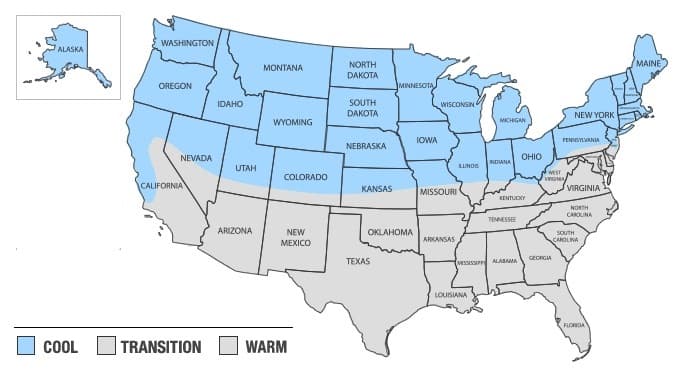
Nebraska, with its cool season climate, prefers a particular set of grasses that relish the lower temperatures. The following sods are the easiest to grow and maintain in Nebraska:
While it's possible to grow grasses meant for other regions with proper care, attention and timing, these are the most common grasses in Nebraska for residential lawns.
Level Up Your Lawn Skills
Once per week we'll send you an interview from someone who has mastered the art of lawn care.
Recommended species for shade
We got it, folks: Nebraska's not just sunny prairies and open fields. We've got shade. Lush, cooling shade. And you know what thrives under those conditions? Some fantastic grass types. Let's get right to it. We're not here to waste time, we're here to find out about the best shade-tolerant sod in Nebraska.
First up, we've got Fine Fescue. Known for its shade-loving ways, this cool-season grass stands strong under Nebraska's wide variety of weather conditions. It's low maintenance, it's durable, and it only begs for three to five hours of sunlight. Intense noonday sun? Not this hero's style.
Next on the roster: Tall Fescue. Another cool-season grass, Tall Fescue is tolerant of Nebraska’s dry summers and cold winters. More demanding than its fine counterpart, it packs a punch in the shade, requiring at least four to six hours of sun. Its roots go deep though, making it drought resistant. Nebraska weather doesn't scare away this titan.
And then there's Kentucky Bluegrass. Now, this isn't your shade champion like the Fescues, but it loves a good mixture of sun and shade. It needs around six to eight hours of sunlight to stay green and lush. And, boy, does it stay lush. It's the emerald prince of Nebraska's sod.
Maintenance. No one likes it, but it's a must. All these grasses will need proper watering, mowing, and fertilising to keep them at their best. But hey, if you wanted easy, you'd have stuck with concrete.
That’s our shade-loving trio: Fine Fescue, Tall Fescue, and Kentucky Bluegrass. We've got full sun sod options up next, but remember: whatever your Nebraska sod needs, we've got the dirt on it. We're in this together.
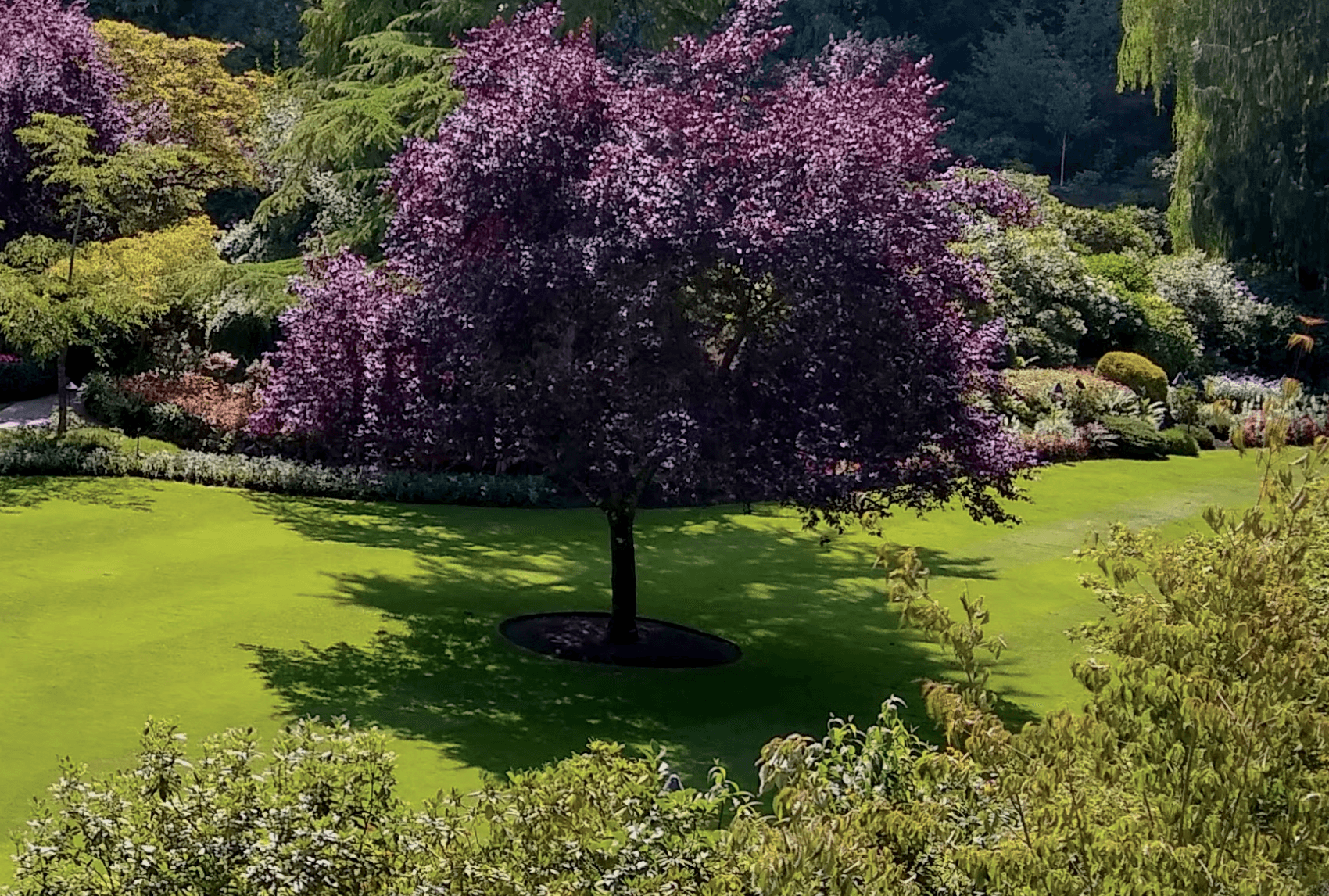
Recommended for full sun or partial sun
Choosing the right sod for your lawn depends heavily on the sunlight exposure in your yard. Different grass types have varying light requirements for optimal growth and appearance. Assessing whether your lawn receives full or partial sun is essential in selecting sod that will flourish and stay healthy in your specific environment.
Below are some sod options recommended for either full sun or partial sun conditions in NE:
| Grass Type | Sun | Good to Know |
|---|---|---|
| Tall Fescue | Partial | Tall Fescue is adaptable to a range of conditions, including partial sun, and is known for its deep root system and tolerance to drought. |
| Kentucky Bluegrass | Full | Kentucky Bluegrass prefers full sun and is prized for its fine texture, rich color, and ability to recover quickly from damage. |
| Perennial Ryegrass | Full | Perennial Ryegrass thrives in full sun and is known for its rapid germination, fine texture, and bright green color. |
| Fine Fescue | Partial | Fine Fescue is well-suited for partial sun and is appreciated for its fine texture, shade tolerance, and low maintenance requirements. |
What varieties stay green year-round?
As with anything agriculture related, there is some nuance to this question. There are many grasses that can stay green year round in but it depends heavily on your location within Nebraska as well as any microclimates that may exist.
The following grasses have the ability to stay green year round in Nebraska:
| Grass Type | Caveats |
|---|---|
| Tall Fescue | It typically stays green throughout the year in milder climates, given that it isn't overly stressed by heat or drought in the summer. |
| Kentucky Bluegrass | It can retain its green color for much of the year when well-maintained, though harsh winter temperatures can push it towards dormancy and a browner hue. |
| Perennial Ryegrass | It can stay vibrant and green throughout the year in many climates, unless conditions are extremely cold or dry. |
| Fine Fescue | It keeps its green color throughout the year in ideal conditions. If the winters are particularly harsh, it may lose some color. |
What is the best time to lay sod in Nebraska?
Since it is considered a cool-season location, the ideal time to lay sod is in early spring or early fall. These periods offer moderate temperatures, leading to less stress on the sod and providing optimal conditions for root establishment before extreme temperatures of winter or summer. Avoid the summer, as high heat can stress the sod.
As you can see in the image below, you'll notice the most shoot growth (the grass above ground) and root growth in the spring and fall for cool season grases:
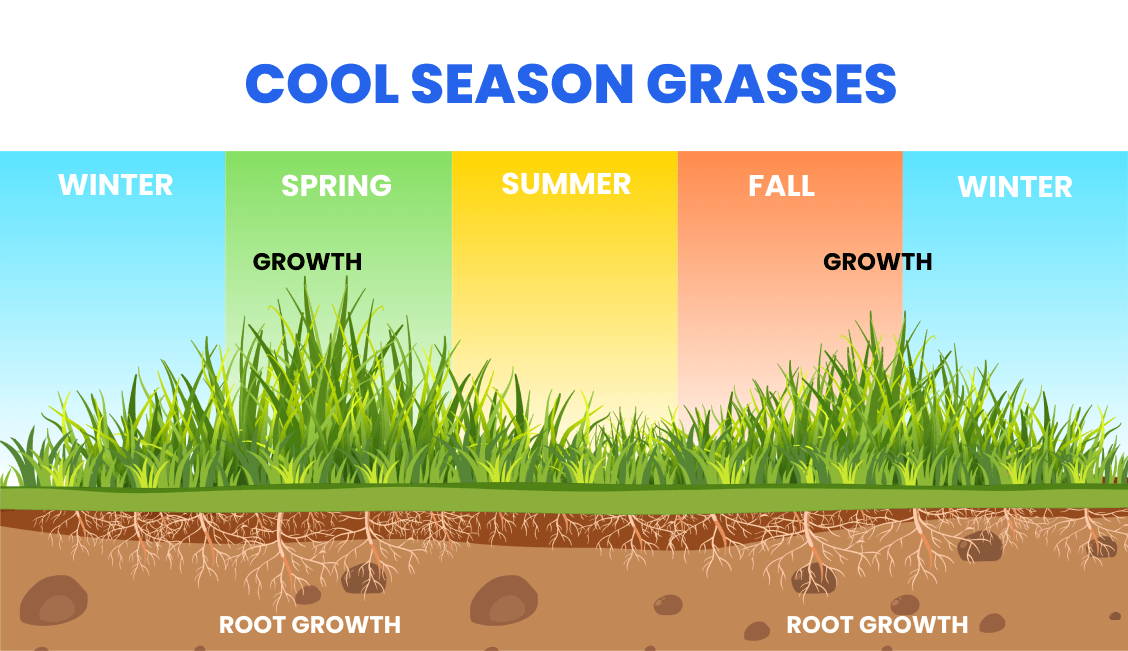
Find reputable companies for installing sod in NE
Here are the top problems you'll face when trying to get sod installed by a landscaping company:
- They're not transparent about pricing. You'll often get a quote that's way higher than you'd expect.
- They're hard to get ahold of on the phone or you'll reach out online but won't hear back.
- It's hard to pin them down for a specific date. Because you can only bring sod from the farm when there's decent weather, this causes some delays at times. It also has a short shelf life, so it's important to get it installed within a day or two of delivery.
We've done all the work for you. Click below to get a quote from one of the top installers in Nebraska.
